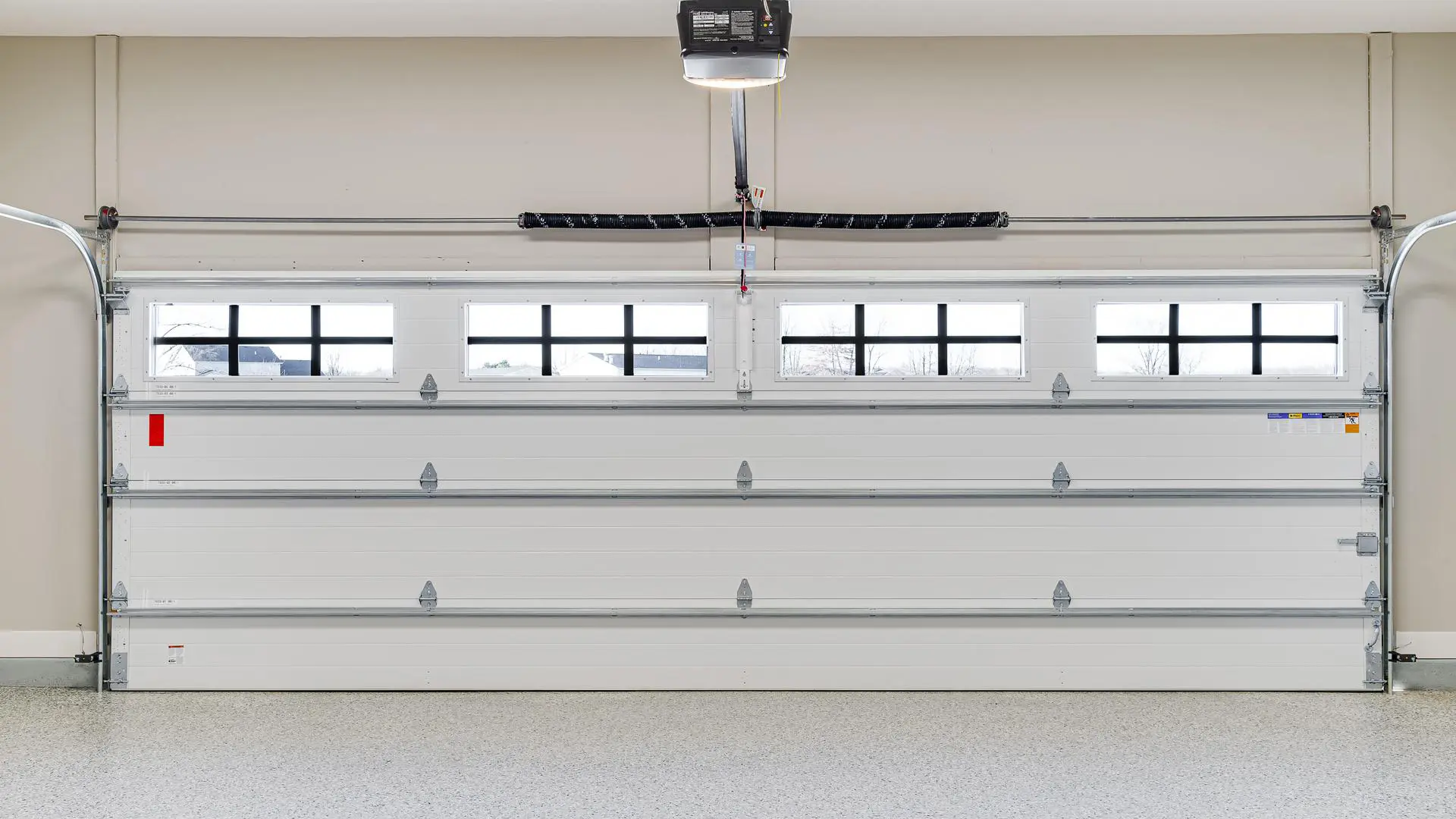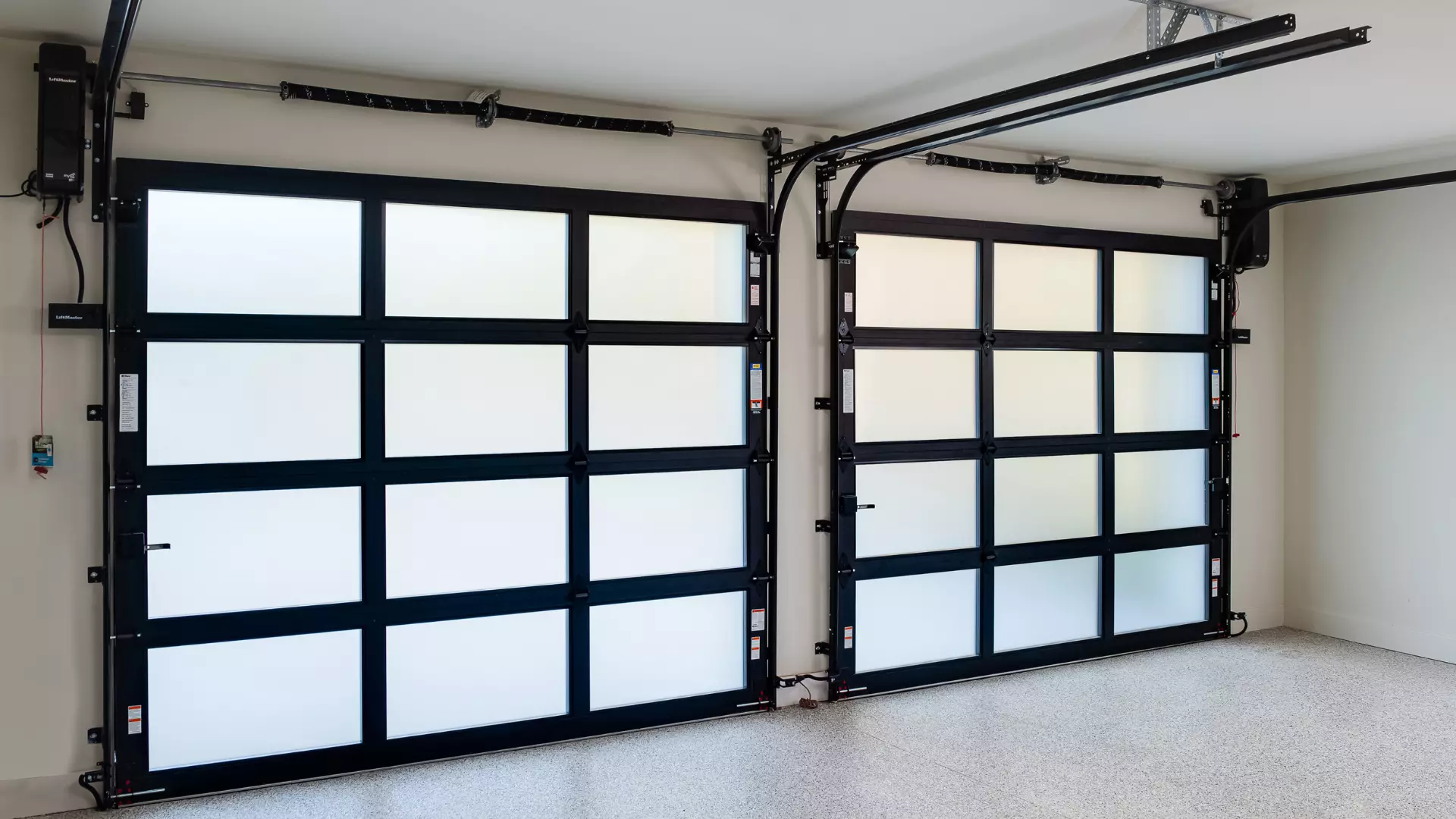WD-40 is one of those ever-present household products that seems to fix everything. From squeaky door hinges to stuck zippers, from rusty bike chains to stubborn stuck parts, it's the go-to solution for many of us. But that doesn't mean it's the best choice for every job. Case in point: your garage door. While it may be tempting to grab that trusty blue can to silence the screech of a dry hinge or protect the metal parts from rust, this is one application where WD-40 falls short.
In fact, using WD-40 on your garage door can do more harm than good. It attracts dirt and dust, and can soften plastic nylon, or rubber components. It can also damage the powder coat finish on your door. So, what should you use instead? Look for a silicone-based lubricant or a product specifically designed for garage doors (like Clopay Pro Lube). These won't leave a sticky residue or damage the finish.
The Composition of WD-40
What is WD-40, exactly? The "WD" stands for "water displacement," and the "40" refers to the fact that it was the 40th formula tried by the chemist who developed it. It's a penetrating oil that's designed to displace moisture, loosen stuck parts, and protect against rust and corrosion. It's a mixture of chemical ingredients, including petroleum-based oil and aliphatic hydrocarbon.
WD-40 is great at breaking through the bond between rust and metal, making it easy to remove rusted parts. It also leaves a thin film that protects against further rust. And because it displaces moisture, it's great for protecting tools and machinery from rust when they're in storage. But despite its many uses, WD-40 isn't the best choice for lubricating moving parts. It doesn't provide long-lasting lubrication. For that, you're better off with a product that's specifically designed to be a lubricant.
Why WD-40 Is Not Suitable for Garage Doors
Why is WD-40 a bad idea for your garage door? For starters, it can damage the components of your garage door system. The hinges, rollers, and springs of your garage door see a lot of action. They need a lubricant that can stand up to heavy use and provide long-lasting protection. WD-40 doesn't cut it. It attracts dirt and dust, which can cause the tracks to get tacky and put extra strain on the opener. Over time, this can shorten the lifespan of your opener and even cause it to fail. WD-40 is also bad news for the rubber, plastic or nylon rollers, seals and gaskets found throughout your garage door system. It can deteriorate these materials, causing them to crack and lose their shape.
And while WD-40 may silence a squeaky hinge in the short term, it provides only temporary relief. It doesn't provide the long-lasting lubrication that your garage door needs to run smoothly. With WD-40, you'll be reapplying every few days. And each time you do, you'll be inviting more dirt and dust to accumulate on your door.
Recommended Alternatives to WD-40
Instead of using WD-40, look for a lubricant that's specifically designed for garage doors. Silicone-based lubricants are a great choice. They provide long-lasting lubrication without attracting dirt or leaving a sticky residue. With a garage door lubricant, a little goes a long way. Apply a thin layer to the hinges, rollers, and springs. You should also lubricate the locks and any moving parts on the opener. Wipe away any excess with a cloth.
When it comes to maintaining your garage door, apply lubricant every three to six months, or whenever you notice the door getting noisy. You should also inspect the door's balance and make any necessary adjustments. An unbalanced door puts extra strain on the opener and can cause it to fail prematurely. Also keep the tracks clean and clear of obstructions.
Do You Need Garage Door Maintenance Now?
How do you know if your garage door needs maintenance? There are a few key signs to watch out for. If the door is making a lot of noise when it opens and closes, that's a red flag. So is vibration or shaking when the door is in motion. If the door isn't opening and closing smoothly, or if it's sagging to one side, that's another sign that something is amiss. And of course, if the door won't open or close at all, that's a clear indication that you need to call a professional.
Regular maintenance and periodic inspections from a qualified technician can help prevent these problems. A technician can inspect the door's balance and make any necessary adjustments. They can lubricate the moving parts and inspect the springs and cables for signs of wear. They can also tighten any loose bolts or screws and replace any damaged or worn-out parts. With regular maintenance, you can extend the lifespan of your garage door and opener, prevent costly repairs, and ensure that the door is running safely. Don't wait until your door breaks down - call a technician today to schedule your maintenance appointment.
Remember, WD-40 may be a handy product to have around, but it's not the right choice for your garage door. It can attract dirt, damage the finish, and only provide a temporary fix from squeaks and squeals. Instead, look for a lubricant that's specifically designed for garage doors. Don't let WD-40 gum up the works — make the switch to a garage door lubricant today.
Helpful Articles
How to Properly Lubricate Garage Door Components



